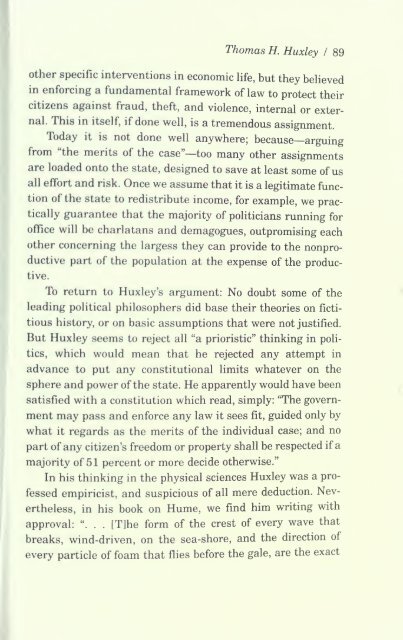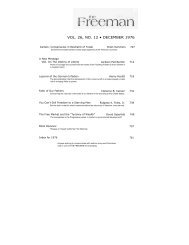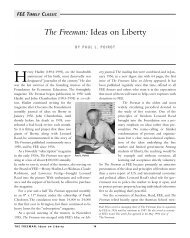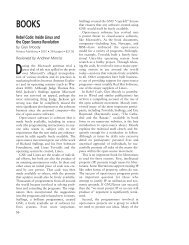Is Politics Insoluble?
Is Politics Insoluble?
Is Politics Insoluble?
Create successful ePaper yourself
Turn your PDF publications into a flip-book with our unique Google optimized e-Paper software.
Thomas H, Huxley I 89<br />
other specific interventions in economic life, but they beheved<br />
in enforcing a fundamental framework of law to protect their<br />
citizens against fraud, theft, and violence, internal or exter-<br />
nal. This in itself, if done well, is a tremendous assignment.<br />
Today it is not done well anywhere; because—arguing<br />
from "the merits of the case"—too many other assignments<br />
are loaded onto the state, designed to save at least some of us<br />
all effort and risk. Once we assume that it is a legitimate func-<br />
tion of the state to redistribute income, for example, we prac-<br />
tically guarantee that the majority of politicians running for<br />
office will be charlatans and demagogues, outpromising each<br />
other concerning the largess they can provide to the nonpro-<br />
ductive part of the population at the expense of the produc-<br />
tive.<br />
To return to Huxley's argument: No doubt some of the<br />
leading political philosophers did base their theories on ficti-<br />
tious history, or on basic assumptions that were not justified.<br />
But Huxley seems to reject all "a prioristic" thinking in poli-<br />
tics, which would mean that he rejected any attempt in<br />
advance to put any constitutional limits whatever on the<br />
sphere and power of the state. He apparently would have been<br />
satisfied with a constitution which read, simply: "The govern-<br />
ment may pass and enforce any law it sees fit, guided only by<br />
what it regards as the merits of the individual case; and no<br />
part of any citizen's freedom or property shall be respected if a<br />
majority of 51 percent or more decide otherwise."<br />
In his thinking in the physical sciences Huxley was a pro-<br />
fessed empiricist, and suspicious of all mere deduction. Nev-<br />
ertheless, in his book on Hume, we find him writing with<br />
approval: ". . . [T]he form of the crest of every wave that<br />
breaks, wind-driven, on the sea-shore, and the direction of<br />
every particle of foam that flies before the gale, are the exact








